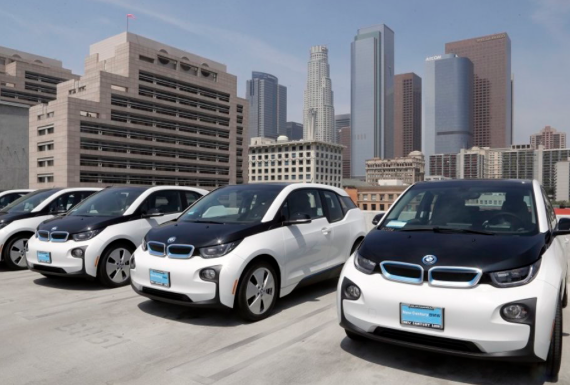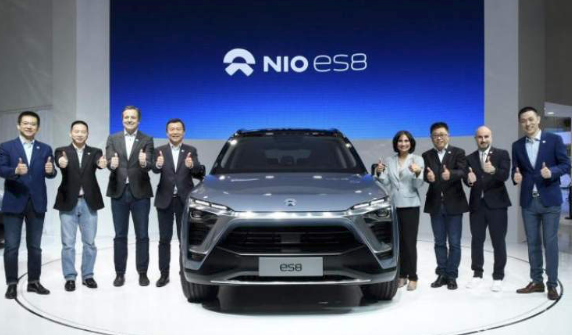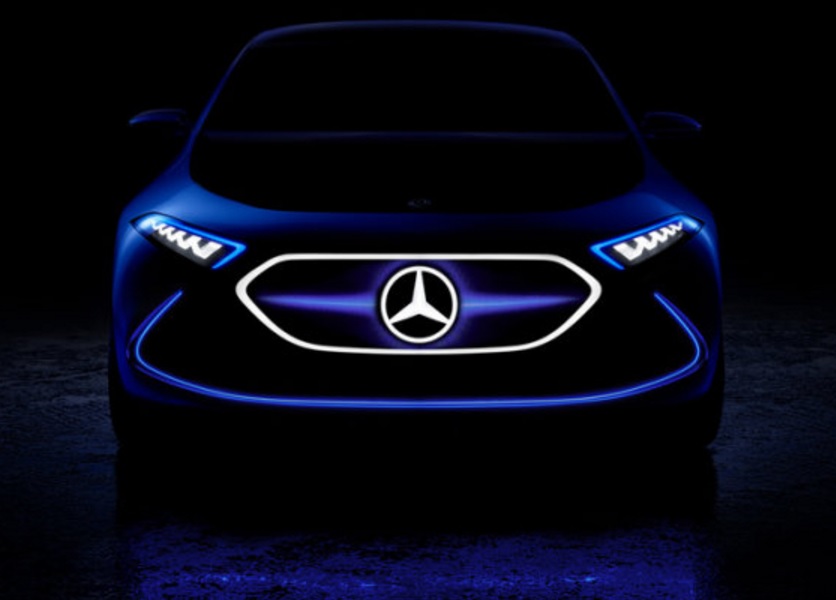Cities leading the charge: Cities, utilities, and technology suppliers are making serious commitments to expanding the electric vehicle charging infrastructure, according to speakers at last week’s Global Climate Action Summit in San Francisco. The Climate Group and C40 Cities groups announced that 26 cities,  states, regions and businesses took on commitments. Those include 12 states and regions joining The Climate Group’s zero-emission vehicle challenge, such as California and Washington state, Quebec, Scotland, and Australia’s Capital Territory; and 12 cities joining C40’s fossil fuel-free streets declaration, including Seoul, Tokyo, Honolulu, Santa Monica, and West Hollywood, Calif. Los Angeles Mayor Eric Garcetti said that 19 cities and two counties in the U.S. have formally launched the Climate Mayors Electric Vehicle Purchasing Collaborative. EVBox, which now has about 60,000 charging stations installed globally, expects to have 1 million EV chargers installed by 2025. ChargePoint announced a target of 2.5 million public chargers by 2025, mostly in North America and Europe. That will shoot up from about 53,000 public charging sites the company currently operates.
states, regions and businesses took on commitments. Those include 12 states and regions joining The Climate Group’s zero-emission vehicle challenge, such as California and Washington state, Quebec, Scotland, and Australia’s Capital Territory; and 12 cities joining C40’s fossil fuel-free streets declaration, including Seoul, Tokyo, Honolulu, Santa Monica, and West Hollywood, Calif. Los Angeles Mayor Eric Garcetti said that 19 cities and two counties in the U.S. have formally launched the Climate Mayors Electric Vehicle Purchasing Collaborative. EVBox, which now has about 60,000 charging stations installed globally, expects to have 1 million EV chargers installed by 2025. ChargePoint announced a target of 2.5 million public chargers by 2025, mostly in North America and Europe. That will shoot up from about 53,000 public charging sites the company currently operates.
Bright spot for the Model 3: Tesla, Inc., had a bright sport in its continuing struggle to mass produce the Model 3 and to restore its brand image. The Model 3 received a five star safety rating in all crash tests conducted by the National Highway Traffic Safety Administration. The rear-wheel-drive version of the Tesla Model 3 earned an all-around five-star safety rating from NHTSA, the highest possible issued by the agency from frontal, side, and rollover crashes. As for the continuing challenges faced by Tesla and CEO Elon Musk, the company saw another top executive leave. Liam O’Connor, vice president of global supply management, has resigned said people familiar with the matter. O’Connor had come over from Apple Inc. in 2015, and is at least the fifth senior Tesla executive to leave the company in recent weeks. Another blow took place this week with the U.S. Dept. of Justice reportedly opening a criminal fraud investigation into the electric carmaker, stemming from Musk’s announcement last month that he would be taking the company private and that he secured the needed funding to do so. The probe appears be at an early phase, but it follows a reported Securities and Exchange Commission investigation and shareholder lawsuits over the same issue; and a libel lawsuit filed against Musk by a man he accused of being a pedophile. A Tesla spokesperson said the Justice department did send Tesla a voluntary request for documents and that the automaker has been cooperating.
Volvo supports efforts to reduce plastic: Volvo Cars this week joined the G7 Ocean Plastics Partnership during the G7 Summit in Halifax, Canada. The company also presented its own sustainability program in detail, including its Plastics Vision that aims to substantially increase the amount of recycled material used in new Volvo cars and to support efforts to reduce plastics pollution. “Volvo Cars is the only car maker to be invited to the G7 summit, underlining the company’s position as an industry leader in sustainability,” the company said in a statement.
Lucid Motors gets $1B: Luxury electric vehicle startup Lucid Motors gained a $1 billion investment from Saudi Arabia’s sovereign wealth fund, an entity once rumored to be Musk’s potential partner in taking Tesla private. Lucid Motors will use the investment to finance the 2020 launch of its first EV, the Lucid Air. Tesla CEO Elon Musk had previously touted conversations with the Saudi fund as key in considerations to take Tesla private, which won’t be happening for Tesla.
IKEA delivering in EVs: IKEA says all its home deliveries in the inner cities of Amsterdam, Los Angeles, New York, Paris and Shanghai will be made by electric vehicles or through other zero-emission solutions. That will take place by 2020 and will also support adding charging stations to its retail stores. Last year, the company joined EV100, an initiative launched by the Climate Group, that aims to meet the five-city EV goal by 2020, make all home deliveries in ZEVs by 2025, setting up chargers at IKEA locations by 2020, and cut in half emissions from IKEA employees and customers by 2030.
Daimler investing in Proterra: Daimler Trucks is investing in the fast-growing electric bus market through leading a $155-million investment round in electric busker Proterra. Tao Capital Partners, a San Francisco investment firm, is the other lead investor. Proterra and Daimler will also explore electrifying select Daimler heavy-duty vehicles. One of the first ventures will be to bring Proterra’s battery and drivetrain technologies to the North American school bus market through Daimler’s Thomas Built Buses division. “We aren’t just the leading supplier of conventional truck and buses; when it comes to electrification we also want to be the leader,” said Martin Daum, global head of Daimler Trucks and Buses, at the IAA Commercial Vehicles show in Hanover, Germany, on Wednesday.

 this week and market valuation at $6.42 billion; but that’s well below the $20 billion company executives had been initially hoping for. Shanghai-based Nio is targeting the premium electric-SUV segment, calling itself Tesla-competitive in its home market of China. Nio launched its first electric SUV in December, the seven-seat Nio ES8, which is priced at about half the cost of a Tesla Model X sport utility in China. Formerly known as NextEV, Nio says it will be bringing an autonomous EV to the U.S. by 2020. The ES6, an electric five-passenger SUV, is in development. Nio backers include Chinese internet giants Baidu and Tencent, as well as Chinese smartphone maker Xiaomi. Tencent also owns a small stake in Tesla stock.
this week and market valuation at $6.42 billion; but that’s well below the $20 billion company executives had been initially hoping for. Shanghai-based Nio is targeting the premium electric-SUV segment, calling itself Tesla-competitive in its home market of China. Nio launched its first electric SUV in December, the seven-seat Nio ES8, which is priced at about half the cost of a Tesla Model X sport utility in China. Formerly known as NextEV, Nio says it will be bringing an autonomous EV to the U.S. by 2020. The ES6, an electric five-passenger SUV, is in development. Nio backers include Chinese internet giants Baidu and Tencent, as well as Chinese smartphone maker Xiaomi. Tencent also owns a small stake in Tesla stock. vehicles. Mercedes-Benz unveiled the Mercedes EQC all-electric SUV on Tuesday, and it will be Daimler’s first production model under the company’s electric EQ sub-brand. BMW next week will be flying the autonomous iNEXT electric crossover in a Boeing 777 Freighter to press events in Munich, New York, San Francisco, and Beijing. On Monday, Volkswagen’s Audi began mass production of the Audi e-tron, the brand’s first all-electric SUV with longer range. Audi will unveil the battery electric SUV at a world premiere in San Francisco on Sept. 17. It’s a good time to roll out these high-performance, premier EVs as Tesla and its leader, Elon Musk, face a series of challenges. Production problems for the high-volume Model 3 continue, as do controversial moments with Musk — made more so last night during a podcast (see below). Editor’s note:
vehicles. Mercedes-Benz unveiled the Mercedes EQC all-electric SUV on Tuesday, and it will be Daimler’s first production model under the company’s electric EQ sub-brand. BMW next week will be flying the autonomous iNEXT electric crossover in a Boeing 777 Freighter to press events in Munich, New York, San Francisco, and Beijing. On Monday, Volkswagen’s Audi began mass production of the Audi e-tron, the brand’s first all-electric SUV with longer range. Audi will unveil the battery electric SUV at a world premiere in San Francisco on Sept. 17. It’s a good time to roll out these high-performance, premier EVs as Tesla and its leader, Elon Musk, face a series of challenges. Production problems for the high-volume Model 3 continue, as do controversial moments with Musk — made more so last night during a podcast (see below). Editor’s note: